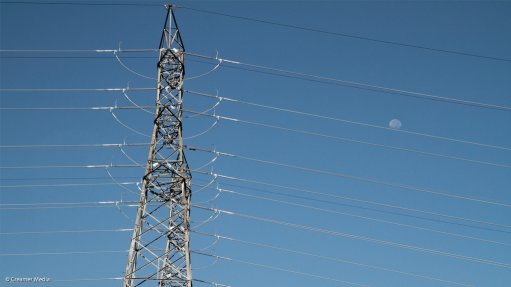Municipalities the Achilles’ heel in Gauteng’s water woes – Portfolio Committee
Municipalities’ inability to perform their water conservation and advocacy roles, and their inability to pay for bulk services and infrastructure maintenance, are the main causal factors in Gauteng’s water-related challenges, Portfolio Committee on Water and Sanitation chairperson Leon Basson said on Wednesday.
Following an urgent meeting with Rand Water and the Department of Water and Sanitation (DWS) concerning water shortage challenges in Gauteng, he said that municipalities must play their role in improving operation and maintenance of their infrastructure, including repairing leaks, improving metering billing, improving revenue collection, improving pressure management and engaging in community education and awareness.
Without these and other interventions, the system will continue to have challenges at the expense of water users.
“The reality is that municipalities are not coming to the party in playing their critical role in the water value chain, which requires an effective and efficient system from source to tap,” Basson continued, noting that it was unacceptable that Rand Water had had to bear the brunt for municipal inadequacies.
The committee raised several major concerns, including the volume of water losses within the system, largely within the municipal system, with Gauteng’s nonrevenue water at about 49.2% – almost half of its treated water – which is mostly caused by leaks as a result of unmaintained municipal infrastructure and illegal water connections.
Basson pointed out that reducing water loss was possible with adequate investment in infrastructure maintenance, demand management and speedy repair of leaks, citing the example of the Western Cape, where nonrevenue water was 27.6% on average.
The committee urged municipalities to implement demand management strategies to curtail the high water demand in Gauteng, highlighting Gauteng’s unsustainable per capita water demand of 279 litres a day, compared with the international average of 173 litres per capita a day.
Gauteng municipalities must implement water conservation and demand management to ensure system viability and engage in community awareness and communication initiatives to encourage reduction in water use.
Further, Basson said that it was unacceptable that municipalities were not paying for bulk services, which had led to serious cash flow challenges for water boards, some of which were on the brink of bankruptcy.
Over R5-billion is owed to Rand Water in overdue debt alone.
“The nonpayment for bulk services has been a long-term worry for the committee and it has therefore convened a meeting on November 12 with the National Treasury, the Department of Cooperative Governance and Traditional Affairs and DWS to find workable solutions to this challenge.”
Meanwhile, the committee commended Rand Water for its commitment to infrastructure maintenance and its development plan, which aimed to ensure a resilient and stable water supply to municipalities.
With the current R4.83 capital expenditure budget, the committee believes that municipalities must adopt a forward-looking infrastructure development and maintenance model.
In addition, the committee welcomes the intervention in which Rand Water will work regularly and intensely with municipalities to find solutions to current challenges. The committee will continue to monitor progress to ensure that Gauteng averts the risk factors facing the water system in the province.
“Gauteng plays a critical role in the economic wellbeing of the country and water plays an essential socioeconomic role. Thus the current risks must be mitigated to prevent complete collapse of the system. All stakeholders must continue to work collaboratively to prevent a calamity, especially in the context of South Africa being a water-scarce country that is facing climate change challenges,” Basson concluded.
Article Enquiry
Email Article
Save Article
Feedback
To advertise email advertising@creamermedia.co.za or click here
Press Office
Announcements
What's On
Subscribe to improve your user experience...
Option 1 (equivalent of R125 a month):
Receive a weekly copy of Creamer Media's Engineering News & Mining Weekly magazine
(print copy for those in South Africa and e-magazine for those outside of South Africa)
Receive daily email newsletters
Access to full search results
Access archive of magazine back copies
Access to Projects in Progress
Access to ONE Research Report of your choice in PDF format
Option 2 (equivalent of R375 a month):
All benefits from Option 1
PLUS
Access to Creamer Media's Research Channel Africa for ALL Research Reports, in PDF format, on various industrial and mining sectors
including Electricity; Water; Energy Transition; Hydrogen; Roads, Rail and Ports; Coal; Gold; Platinum; Battery Metals; etc.
Already a subscriber?
Forgotten your password?
Receive weekly copy of Creamer Media's Engineering News & Mining Weekly magazine (print copy for those in South Africa and e-magazine for those outside of South Africa)
➕
Recieve daily email newsletters
➕
Access to full search results
➕
Access archive of magazine back copies
➕
Access to Projects in Progress
➕
Access to ONE Research Report of your choice in PDF format
RESEARCH CHANNEL AFRICA
R4500 (equivalent of R375 a month)
SUBSCRIBEAll benefits from Option 1
➕
Access to Creamer Media's Research Channel Africa for ALL Research Reports on various industrial and mining sectors, in PDF format, including on:
Electricity
➕
Water
➕
Energy Transition
➕
Hydrogen
➕
Roads, Rail and Ports
➕
Coal
➕
Gold
➕
Platinum
➕
Battery Metals
➕
etc.
Receive all benefits from Option 1 or Option 2 delivered to numerous people at your company
➕
Multiple User names and Passwords for simultaneous log-ins
➕
Intranet integration access to all in your organisation

















